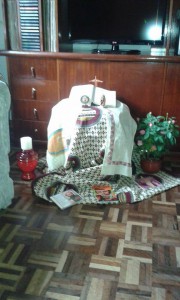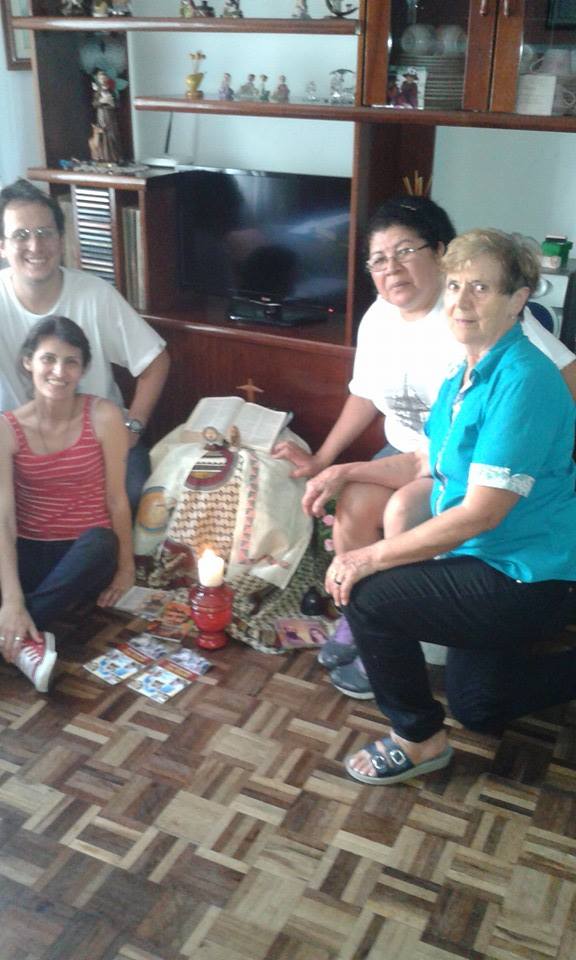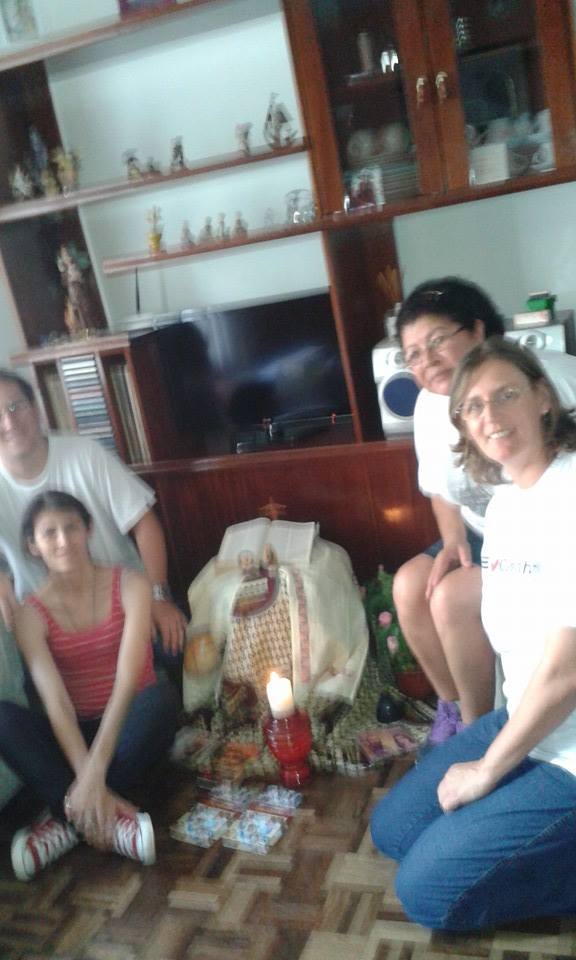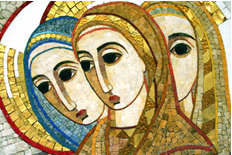A commentary on Jn 20, 19-31 Second Sunday of Easter, April 12th 2015
 In this second Sunday of Easter we continue Reading the 20th chapter of John’s Gospel, which tells us what happened in that “first day of the week”, that is, at the beginning of the “new creation”, the new time in history that we are living as communities of Jesus’ disciples and missionaries. The experience of Jesus’ living presence among the disciples happens again eight days later, specifically meant for Thomas…, and it continues happening each Sunday (every eight days), when the Christian community gathers to celebrate the Lord’s presence.
In this second Sunday of Easter we continue Reading the 20th chapter of John’s Gospel, which tells us what happened in that “first day of the week”, that is, at the beginning of the “new creation”, the new time in history that we are living as communities of Jesus’ disciples and missionaries. The experience of Jesus’ living presence among the disciples happens again eight days later, specifically meant for Thomas…, and it continues happening each Sunday (every eight days), when the Christian community gathers to celebrate the Lord’s presence.
The Gospel tells us that Thomas did not believe till he could see the hands and the wounded side of Jesus. It is precisely out of this “broken” side of Jesus, his totally self-given heart, that the Church springs up and the Spirit flows out into humanity with the wonderful gifts of peace, joy, forgiveness and mission. Let us see briefly:
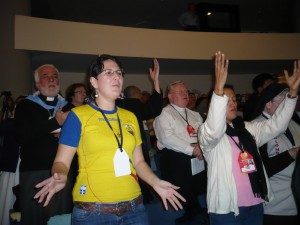 1) “Peace to you”
1) “Peace to you”
Jesus says the traditional greeting words used by Jews and some other cultures even today. Nowadays, we would maybe say something like this: “Hello, how are you, I wish you peace and wellbeing”. Not too much? Well, I think it is quite a lot. I remember when Pope Francis, just elected, came out at the St. Peter’s balcony and simply said: “Buona sera” (Good evening). It was enough for the crowd to react with enthusiasm and great joy. There was no need for a big and profound speech; only that: a simple word of greeting conveying an attitude of openness and friendship.
With this, I consider the importance and beauty of a simple but loving greeting among the members of a family, re-asserting each day that care for each other that gives joy to life; I think of a respectful and positive greeting at the working place; I see that stretched out hand that we give during Mass recognising in our neighbour a brother or a sister, even if we do not know each other; I observe that kind of welcoming gesture or word to the foreigner… I think of the World peace that we need so badly in these times of violence and conflict. In all these situations, Jesus is the first one to tell me: “Hello, peace to you”. So that I myself can repeat the greeting to others.
It’s interesting to note that, as He was greeting the disciples, Jesus shows his hands and side with the signs of the torture He suffered. That means that the peace Jesus is offering is not a “cheap” one. It was “bought” with His own blood. That means that peace in the family, in the community, in the working place, in the world, is not always easy, it’s quite often a difficult task… But Jesus –and we with Him– was not a coward, but a “warrior”, with no fear to suffer if necessary.
2) Joy: “The disciples were glad when they saw the Lord”.
The presence of Jesus, with His peace, produces joy, as it does the arrival of a friend, or the mutual acceptance in the family or in the community. It’s not a “superficial” joy, that hides difficulties, problems or even sins; it’s not the joy of the one who lies to himself in a false reality or in unawareness.
It’s the joy of the one who feels respected and able to respect; the one who knows He is loved and able to love; the one who believes He is really a blessed child of the Father. It’s the deep joy of somebody who found a sense and a mission for his/her life. It’s the joy of somebody who met Jesus as a faithful friend, a trustful master, and a Lord that wins wrong with goodness.
3) Forgiveness: “If you forgive the sins of any they are forgiven”.
The joy of the disciple is not the joy of somebody that considers himself “prefect” or pretends to do everything perfectly. It’s the joy of that person who accepts to be forgiven and is ready to sow seeds of forgiveness. Jesus gave to His Church the Spirit of forgiveness, mercy and reconciliation. Pope Francis re-instated in our times this “mercy principle”. The Church is not a place of lawful righteousness or a Court of Justice; the Church is a place of mercy and reconciliation, a place where everybody has a chance to try a new beginning. Without mercy, humanity becomes impossible to live, because all of us are in need of mercy. Peace, mercy, brotherhood… we need them so much; they are a fruit of the Spirit the Risen Lord gives out to us.
4) Mission: “As the Father has sent me, even so I send you”
The community of disciples, pacified, pardoned, built up as a house of mercy, becomes a missionary community, sent to the world to be precisely that: a house of mercy, reconciliation and peace. And really, how much does our world need that! How necessary it is to increase and spread out the communities of disciples that, as humble believers, become in the world spaces of peaceful greetings, forgiveness and deep joy!
Fr. Antonio Villarino
Roma




